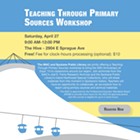When the pandemic hit, people stopped riding the bus in record numbers. Nearly four years later, transit agencies across the country are still grappling with how to bring people back.
In Spokane, annual ridership was nearly halved. Annual ridership in 2021 was just 5.24 million compared with 9.97 million in 2019.
The number of riders has been slowly climbing back up, and the agency has already logged more than 8 million rides this year. During a September board meeting, Spokane Transit Authority CEO E. Susan Meyer noted that daily weekday ridership is the highest it's been since the pandemic and that Spokane's ridership recovery has outpaced the statewide average.
"The whole system is doing well," Meyer said.
But the numbers are still below pre-pandemic levels. And even before 2020, STA ridership had fallen from its peak of 11.3 million rides in 2014.
Spokane County Commissioner Al French, who is chair pro-tem of the STA board, says ridership recovery is trending in the right direction, and that plans to add new routes and improve service quality will help ridership eventually return to pre-pandemic levels.
French says much of the ridership decrease is due to factors outside STA's control — namely work-from-home policies.
"It's really in the hands of the employers," French says. "We just have to be patient, ride it out and make the appropriate adjustments necessary to respond to conditions that we can't control."
Spokane City Council member Zack Zappone, who also sits on the STA board, argues that more drastic action is necessary. He's been pushing — unsuccessfully — for the agency to explore some sort of free or reduced fare option for low-income riders.
"We know that fares are a barrier for people to ride the bus," Zappone says. "One of our No. 1 priorities is to increase ridership, and this is one way to do it."
Zappone gave a presentation on the idea of a low-income fare program this spring, and asked the board to consider the idea and hire a consultant to study the proposal. But the idea didn't go anywhere.
Zappone says he's frustrated by the lack of action, and that the STA board's current rules make it difficult for board members to move ideas forward for a vote. The STA board rules are in the process of being revised, and Zappone says he may introduce the low-income fare proposal again in January.
French thinks it's a terrible idea.
"Our community will abandon public transportation altogether," French says. "Mr. Zappone might not have any respect or commitment to voters, but I do."
FREE OR REDUCED
STA already has reduced fare programs for seniors, military veterans and students. The agency also has a "Community Access Pass" program that lets qualifying nonprofits buy day passes and two-hour passes at a 50% rate to distribute to clients.
Zappone says he first started looking into the idea of a more comprehensive low-income fare program because he heard from nonprofits who said the 50% card program is helpful but insufficient.
Zappone says the costs eat into nonprofits' limited budgets. Spokane's therapeutic court doesn't qualify for the 50% nonprofit discount and spends about $30,000 a year on bus passes to distribute to people with active cases. And people with low incomes who aren't connected to service providers still have to buy passes at the full cost.
Zappone wants to explore a model similar to King County's Orca Lift program, which lets people with income below 200% of the federal poverty level ride the bus with significantly reduced fare.
A recent Seattle Times analysis found that more than a third of Washington transit agencies have adopted zero fare policies on most or all of their routes.
When he presented the idea to the STA board in March, Zappone suggested the agency hire a consultant to explore the idea and help the board figure out if passes should be reduced or totally subsidized, and how eligibility could be determined.
Spokane City Council President Betsy Wilkerson said she was interested in exploring the idea, but other board members pushed back. Spokane County Commissioner Josh Kerns noted that staff had already studied the idea and decided not to move forward when former City Council member and STA board member Kate Burke brought it up. (Zappone notes that Burke had advocated for going totally fare-free — not income-based.)
There was also concern about the idea conflicting with STA's comprehensive plan, which seems to prohibit STA from means testing, or the process of determining eligibility for social programs.
Zappone argues that STA could avoid running afoul of the comprehensive plan by relying on community partners that already do means testing. People could just show STA a photo proving they already qualify for a different income-based social program, he says.
"People aren't riding the bus because they're being left out," Zappone says.
SOMEBODY ALWAYS PAYS
French claims that efforts to implement free fares in other cities like Seattle turned buses into "mobile homeless shelters."
"It jeopardized the safety of drivers, and it also made the experience for fare-paying passengers less enjoyable," French says.
French also has concerns about the financial implications. He worries that voters would reject future STA ballot measures if the agency stops pursuing its stated goal of recovering 20% of its operating expenses through fares.
"You have to respect the commitment to your voters that voted to provide their taxpayer dollars to fund the agency," French says.
Zappone doesn't have an estimate for how much a free or reduced fare program would cost STA and says he wants staff to do a financial analysis. But overall, he says the agency is financially healthy enough to support it.
"I don't believe taxpayers are wanting us to just save money, they want us to spend money to improve services and increase ridership," Zappone says.
When STA opened the long-awaited bus rapid transit City Line earlier this year, the launch came with a free fare promotional period.
The length of the promotional period came with a lot of debate. Some board members, like Spokane Valley Mayor Pam Haley, were initially leaning toward a two-week promotional period, which would have cost the agency $26,730 in lost fare. Zappone preferred keeping fare free until May 2024, at an estimated cost of $548,856.
The board eventually compromised on an eight-week promotional period, with $90,882 in forgone fare revenue.
As of September, overall STA ridership was up 31% compared to 2022. But it's youth ridership that's increased most dramatically, from 502,360 rides as of September last year to 1.16 million this year — a 130% increase.
That's largely because of a program launched in October last year that allows anyone under 18 to ride free through a statewide grant program.
French says the program is great for helping familiarize the next generation of bus riders but notes that the increase in ridership hasn't translated to fares. STA currently recovers just 7.2% of its $92 million in operating expenses through fares, and it anticipates recovering just 6.5% in 2024.
He also notes that the program isn't truly free, since it's being funded by state taxpayers.
"There really isn't anything for free," French says. "It's just who's paying and who's not."
Zappone sees the success of the youth passes and the City Line launch as evidence that affordability makes transit more accessible.
"Our new vision we adopted last year is 'connecting everyone to opportunity,' and I think that vision is a great vision that we're striving to," Zappone says. "I just wish that every board member would live up to that." ♦
























